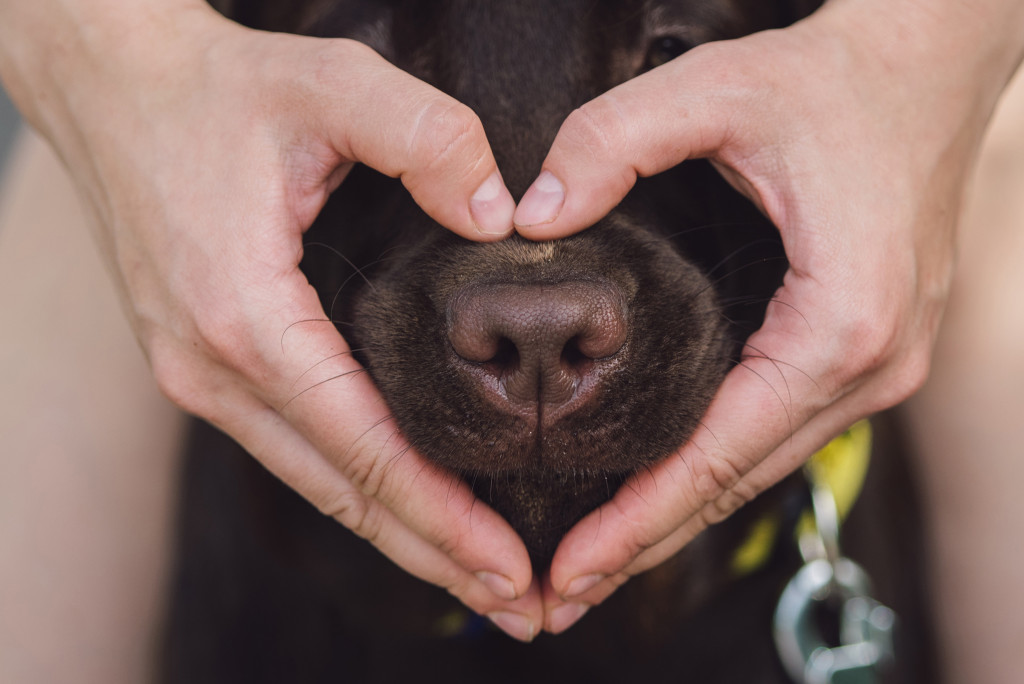Disclaimer: This website provides health information for educational purposes only and is not a substitute for professional medical advice, diagnosis, or treatment. Always seek the guidance of a qualified healthcare provider with any questions you may have.
As more Singaporeans adopt or raise dogs, discussing the best diet plan for them becomes essential.
When it comes to maintaining their health and well-being, dogs are much like humans. Besides regular exercise, they need the right diet. Often, though, both fur parents and pet experts go head to head over what type of food is the best for them.
Worse, many find themselves believing claims that may be completely untrue, putting their pooch’s life in danger. So what is the right nutrition plan for the dog? To plan your dog’s meal properly, learn the most popular facts—and myths—about their diet.
1. Raw Food Diet Is Bad for Them
Probably one of the biggest controversies with regards to a dog’s diet is whether they can (or should) eat raw food. Technically, these animals can actually eat raw meat, certain vegetables, and eggs, to name a few.
This is based on the premise that, before they became domesticated, their ancestors or the earliest breeds consumed the same diet. It is similar to a human’s paleo diet. However, there are essential caveats to remember.
The choice of raw dog food is critical. Feeding them with anything one can get their hands on, like a carcass or a bone, may do more harm than good. One of the common risks is exposure to pathogens like salmonella. This is harmful not only to dogs but also to humans.
Further, not all raw dog food products are of great quality. At the end of the day, these animals still need a balanced diet, particularly if they are still growing, so a meal that’s highly concentrated on protein is not ideal.
But how does a pet parent choose the right dog food if they want to feed them raw? Select brands and products that use only the most natural, freshest components.
In fact, invest in those that provide human-grade ingredients. It might be great if the brand you picked follows ethical practices, as they are more likely to maintain extremely high standards in their manufacturing process. Lastly, find those dog food products that do not contain any preservatives or fillers, as well as antibiotics.
2. Dogs Can Eat a Plant-based Diet

Can dogs eat a vegan, vegetarian, or plant-based diet? The answer is both a yes and no. Unlike cats, dogs are actually not obligate carnivores. In other words, it’s okay if their meals contain a lot of vegetables and some fruits or no meat at all. It could be because these animals have co-evolved closely with humans.
But as the cliché goes, too much of something isn’t good. Just like humans who eat a plant-based diet, dogs that don’t eat meat are more likely to become deficient in certain vitamins, particularly vitamins B and D.
Vitamin B, in particular, is necessary to maintain the animal’s skin and hair health. It also speeds up their healing process and supports their immune system. Although dogs may receive vitamin B supplementation, the best source for this nutrient is still meat.
Another reason dogs need meat once in a while is the characteristic of their digestive system. According to Cailin Heinze, a veterinary doctor for Cummings Veterinary Medical Center at Tufts University, animals like horses and cows have longer snouts, so they can chew their food properly and a much longer gut to allow enough time to digest their meal, which is high in fiber.
Common pets, like cats and dogs, don’t have these features. Instead, they have sharp pointy teeth designed to tear meat or penetrate the bones and a shorter gut length. While dogs can eat a plant-based diet containing a lot of fiber, they may have a hard time digesting it well, unlike protein, such as meat.
In the end, the best person to answer whether the dog needs to follow a plant-based diet or not is their vet. Most likely, though, these canines will still require some meat to keep them healthy.
3. It’s Okay for Dogs to Eat Bones
One of the most common depictions of dogs is them eating or chewing bones. This isn’t surprising as these animals love bones, which can be healthy for them. According to the American Kennel Club (AKC), bones can stimulate the production of saliva enzymes that improve or maintain oral health.
These canines are also less likely to bite or chew on their paws, which help take care of their coat. Lastly, bones can be an excellent source of vitamins and minerals.
However, the consensus is that the quality of the bone matters to avoid injury and chronic disease. AKC discourages giving them pork and poultry bones since they are both high in fat. Cooked pork bones, especially ribs, can also crack and splinter.
Considering the amount of love, loyalty, and happiness dogs provide, they deserve only the best type of food. Hopefully, these points will help parents decide the ideal meal plan for their canine or assist them when talking about dog health with the vet.




